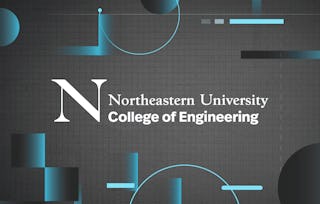This hands-on Python programming course offers students an opportunity to obtain proficiency in the core concepts of Python as well as the programming skills for building applications using tools from various task-specific Python libraries. The course covers important topics in computer science and information systems such as data types, reading and writing to standard IO, using operators, controlling the flow of execution, using functions, reading and writing Python source code files, basic object-oriented programming concepts, and more.

Basic Programming in Python I

Basic Programming in Python I
This course is part of Information Systems Foundations Specialization

Instructor: Yizhen Zhao
1,717 already enrolled
Included with
Skills you'll gain
Details to know

Add to your LinkedIn profile
4 assignments
See how employees at top companies are mastering in-demand skills

Build your subject-matter expertise
- Learn new concepts from industry experts
- Gain a foundational understanding of a subject or tool
- Develop job-relevant skills with hands-on projects
- Earn a shareable career certificate

There are 5 modules in this course
This module focuses on the fundamental steps needed to start your Python programming journey, such as learning about Python’s key features, installing Python, writing your first lines of code, and examining what it means to be a responsible programmer.
What's included
4 videos7 readings1 assignment2 discussion prompts1 ungraded lab
This module focuses on the foundational Python concepts of variables, expressions, and statements. These concepts lay the groundwork for more advanced programming techniques and skills. In this week, you will learn about different data types, specifically integers, floats, strings, and booleans. You’ll also explore variable naming conventions in order to refine your syntax. Finally, you’ll examine different statement types, including assignment, conditional, and looping statements before you put your knowledge into practical application.
What's included
3 videos6 readings1 assignment1 programming assignment1 ungraded lab
This module focuses on the concepts of conditionals and logical operators in Python. Throughout this module, you will explore how conditionals and logical operators can be used for decision-making, control flow, error handling, and algorithm design. By the end of this module, you should be able to put your knowledge of conditionals and logical operators into practice by creating more dynamic code to solve real-world problems.
What's included
2 videos2 readings1 assignment1 peer review1 discussion prompt2 ungraded labs
This module will expand on the wide world of functions in Python. Throughout this module, you will refresh your knowledge on basic concepts such as defining functions before exploring new topics such as the scope and lifetime of variables, and function documentation and calling. From there, you will build on your understanding by learning about decorators and error handling. By the end of this module, you should be able to put your knowledge into practice by creating efficient functions that solve complex problems and handle errors with ease.
What's included
2 videos2 readings1 assignment1 peer review3 ungraded labs
In this module, you will further your knowledge of Python loops. First, you will start by refreshing your knowledge of for and while loops. From there, you will dive into more advanced loop concepts, such as using break and continue statements to enhance the functionality of loop behavior. By the end of this module, you should be able to put your knowledge into practice by creating loops that use control statements and conditionals for dynamic iteration.
What's included
1 video3 readings1 discussion prompt2 ungraded labs
Earn a career certificate
Add this credential to your LinkedIn profile, resume, or CV. Share it on social media and in your performance review.
Instructor

Offered by
Explore more from Data Analysis
 Status: Free Trial
Status: Free TrialNortheastern University
 Status: Free Trial
Status: Free TrialDuke University
 Status: Free Trial
Status: Free Trial Status: Free Trial
Status: Free Trial
Why people choose Coursera for their career

Felipe M.

Jennifer J.

Larry W.

Chaitanya A.

Open new doors with Coursera Plus
Unlimited access to 10,000+ world-class courses, hands-on projects, and job-ready certificate programs - all included in your subscription
Advance your career with an online degree
Earn a degree from world-class universities - 100% online
Join over 3,400 global companies that choose Coursera for Business
Upskill your employees to excel in the digital economy
Frequently asked questions
To access the course materials, assignments and to earn a Certificate, you will need to purchase the Certificate experience when you enroll in a course. You can try a Free Trial instead, or apply for Financial Aid. The course may offer 'Full Course, No Certificate' instead. This option lets you see all course materials, submit required assessments, and get a final grade. This also means that you will not be able to purchase a Certificate experience.
When you enroll in the course, you get access to all of the courses in the Specialization, and you earn a certificate when you complete the work. Your electronic Certificate will be added to your Accomplishments page - from there, you can print your Certificate or add it to your LinkedIn profile.
Yes. In select learning programs, you can apply for financial aid or a scholarship if you can’t afford the enrollment fee. If fin aid or scholarship is available for your learning program selection, you’ll find a link to apply on the description page.
More questions
Financial aid available,

